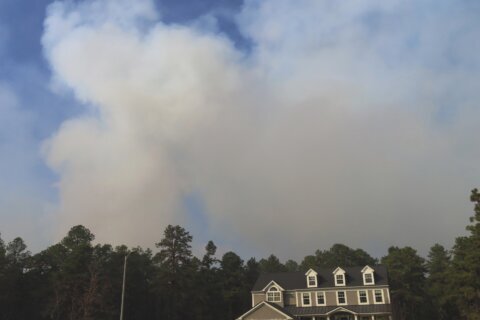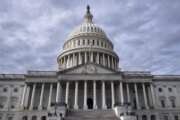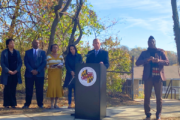A Utah judge promises to rule Thursday on striking from the November ballot a state constitutional amendment that would empower the state Legislature to override citizen initiatives.
The League of Women Voters of Utah and others have sued over the ballot measure endorsed by lawmakers in August, arguing in part that the ballot language describing the proposal is confusing.
The groups now seek to get the measure off ballots before they are printed. With the election less than eight weeks away, they are up against a tight deadline without putting Utah’s county clerks in the costly position of reprinting ballots.
Salt Lake County District Judge Dianna Gibson told attorneys in a hearing Wednesday she would give them an informal ruling by email that night, then issue a formal ruling for the public Thursday morning.
Any voter could misread the ballot measure to mean it would strengthen the citizen initiative process, League of Women Voters attorney Mark Gaber argued in the hearing.
“That is just indisputably not what the text of this amendment does,” Gaber said.
The amendment would do the exact opposite by empowering the Legislature to repeal voter initiatives, Gaber said.
Asked by the judge if the amendment would increase lawmakers’ authority over citizen initiatives, an attorney for the Legislature, Tyler Green, said it would do exactly what the ballot language says — strengthen the initiative process.
The judge asked Green if some responsibility for the tight deadline fell to the Legislature, which approved the proposed amendment less than three weeks ago.
“The legislature can’t move on a dime,” Green responded.
The proposed amendment springs from a 2018 ballot measure that created an independent commission to draw legislative districts every decade. The changes have met resistance from the Republican-dominated Legislature.
The measure barred drawing district lines to protect incumbents or favor a political party, a practice known as gerrymandering. Lawmakers removed that provision in 2020.
And while the ballot measure allowed lawmakers to approve the commission’s maps or redraw them, the Legislature ignored the commission’s congressional map altogether and passed its own.
The map split relatively liberal Salt Lake City into four districts, each of which is now represented by a Republican.
In July, the Utah Supreme Court ruled that the GOP overstepped its bounds by undoing the ban on political gerrymandering.
Lawmakers responded by holding a special session in August to add a measure to November’s ballot to ask voters to grant them a power that the state’s top court held they did not have.
Copyright © 2024 The Associated Press. All rights reserved. This material may not be published, broadcast, written or redistributed.







